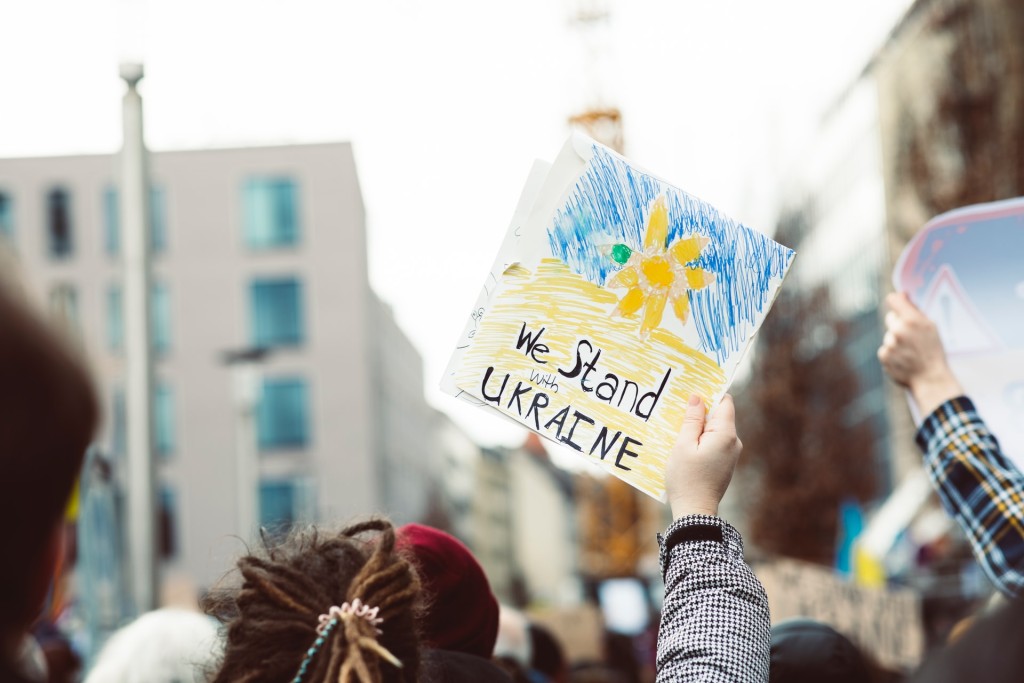The war caught Ukrainian customs in the process of reform. Before the war, the customs service in Ukraine was reformed in several stages. Some results have been achieved, although the main challenges, corruption, and inconsistent regulatory enforcement, still need to be overcome. But the war with Russia created new challenges.
Ukraine suffered colossal losses due to the unprovoked full-scale invasion of Russia. The first days were shocking for the entire Ukrainian society. Customs priorities have changed. The State Customs Service, like all critical facilities, was subjected to cyber-attacks.
Another challenge for customs was temporarily moving the huge number of people as refugees. In the first two weeks of the war, about one million citizens were forced to leave the territory of Ukraine, fleeing the war. All of them crossed the state border of Ukraine. The State Customs Service and other state authorities withstood this challenge with dignity.
The sea export routes due to the Russian occupation of Black Sea ports have been blocked, and the airspace over the country was closed. The land border with the European Union and Moldova remained the only way for export and import into the country, where goods are moved by rail or transported by motor vehicles. Physically, export volumes became limited by the capabilities of this infrastructure. In this situation, the customs’ ability to work is very important for economic development.
Tens of thousands of people, thousands of vehicles, and millions of tons of cargo went across Ukraine’s border with the EU and Moldova. The problem of queues at the border arose on a new scale due to the limited capacity of checkpoints in Ukraine and partner countries.
According to the results of the survey of enterprises, “Simplification of trade procedures 2022”, which was conducted by the IEК in November 2022, queues at the border became the most important problem in the work of customs, which was reported by 55.2% of the survey participants, and 23.9% of the respondents pointed to the limited capacity of the passage of the point as a problem when goods cross the border.
In response to economic challenges, the Government and independent experts developed a vision for the recovery of Ukraine: “A strong European country is a magnet for foreign investments,” [1]and the Recovery Plan of Ukraine aims to accelerate sustainable economic growth. Transforming the Customs Service into an organization focused on security functions and trade facilitation became one of the critical tasks. Speeding up the movement of goods at customs to increase the physical volume of exports was identified among the priority tasks.
Based on the 2022 year results, the paradoxical situation in assessing customs work was observed. On the one hand, the work of the customs at the end of the year was recognized as generally dissatisfied with the top leadership of the country, a sign of which was the dismissal of the leadership of the State Customs Service in February 2023.
On the other hand, it is the customs sphere, in the EU report, recognized as one of the two where EU experts recorded significant progress in the implementation of the Association Agreement and rapprochement with the EU. This happened due to the introduction by Ukraine of the NCTC joint transit mechanism in 2021-2022[2]. This achievement is even more significant because the process continued during a full-scale war.
This paradox can be explained simply, the actual introduction of joint transit is a set of legislative and regulatory regulations. In contrast, the change in the fight against smuggling, the reorganization and cleansing of the customs service from unscrupulous employees, and the creation of conditions that would make corruption impossible is law enforcement. Ensuring the enforcement of all legal norms is the homework that needs to be done. Although we note that according to the results of the IER survey in 2022, compared to 2021, the share of respondents who believe that there is such a problem as corruption and bribery in the customs office almost halved (from 24.7% in 2021 to 12.7% in 2022 ).
Totally in 2022, businesses assessed the work of customs well. Thus, 77% of surveyed IER enterprises engaged in foreign trade believe that the work of Ukrainian customs is efficient and requires minor improvements. The most expected improvement in customs work would be a reduced time for customs formalities (48.7% of respondents). Among the measures that business expects from the customs reform is the automation of procedures and minimization of the human factor (37.1%), and the opening of new checkpoints (24.7%)[3].
Thus, customs reform remains among the key tasks. To overcome the negative consequences of the Russian invasion, it is necessary to speed up the introduction of mechanisms to reduce queues and speed up the border crossing by export goods. Important for this is the further optimization and digitization of procedures, as well as joint measures with EU countries to open new transit points. And the progress that Ukraine has achieved in this area through introducing the common transit regime is a significant achievement that brings Ukrainian customs closer to the European family.
[1] https://france.mfa.gov.ua/news/plan-vidnovlennya-ukrayini
[2] The Analytical Report of February 2023 [https://neighbourhood-enlargement.ec.europa.eu/commission-analytical-report-ukraines-alignment-eu-acquis_en
[3] IER Surveys 2023 http://surl.li/ggzcv



